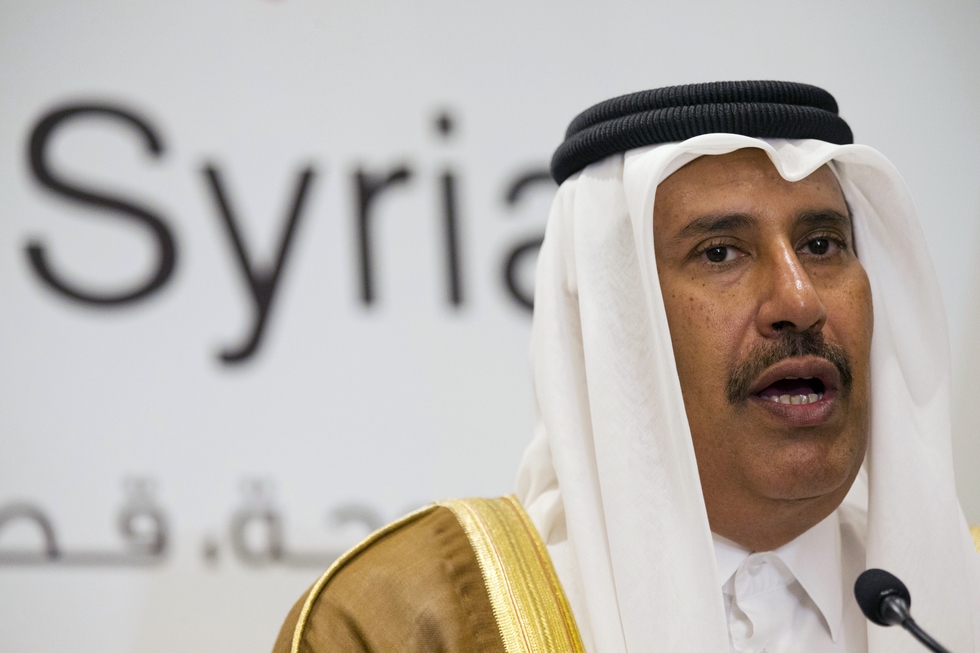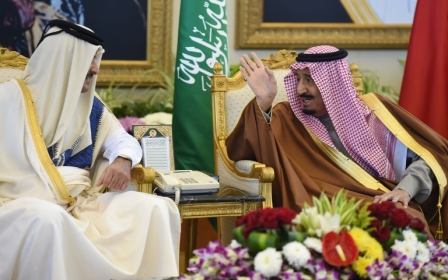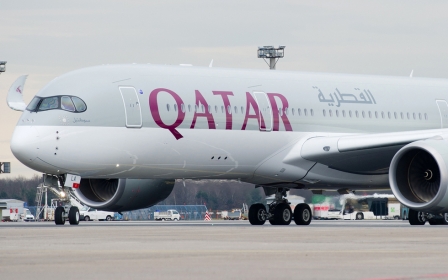Former Qatari PM seeks immunity in UK torture case

Former Qatari Prime Minister Sheikh Hamad bin Jassim bin Jaber al-Thani’s legal team told a court in London on Tuesday that he has diplomatic immunity and should not face prosecution over allegations he had a rival imprisoned and tortured.
Thani, who is often referred to as “HBJ,” is accused of falsely imprisoning British-Qatari dual national Fawaz al-Attiya in conditions amounting to torture, including being kept in solitary confinement and being subjected to sleep deprivation.
Attiya, who is a former spokesman for Qatar, claims that HBJ had him imprisoned for 15 months from October 2009 until January 2010 as part of a long-running feud over the ownership of land on the outskirts of Doha.
Attiya says HBJ seized the land – 20,000 square metres in the Rayyan area west of the Qatari capital – after he refused to sell it to the Qatari billionaire in 1997.
London-born Attiya, who lives in Newmarket, is attempting to win an undisclosed amount of damages from HbJ, who is worth an estimated $12bn, and on Tuesday Mr Justice Blake heard arguments as to why the case should not proceed.
Monica Carss-Frisk QC, acting on behalf of HbJ, told the courtroom that her client strenuously denies all the allegations against him. However, her argument principally focused on the fact that HbJ has diplomatic immunity in the UK and therefore cannot face prosecution.
HbJ stood down as Qatar’s prime minister and foreign minister in June 2013. Since November 2014, he has been on the UK foreign office's diplomatic list as a junior diplomat with the title “minister-counsellor”.
Carss-Frisk referred to a foreign office certificate in court that confirmed HbJ’s continuing diplomatic status in the UK, arguing that this prevents him from facing prosecution in the London High Court.
However, lawyers acting for Attiya, who will make their arguments on Wednesday, have claimed in documents filed with the court that HbJ violated the 1961 Vienna Convention, which governs the activities of serving diplomats, and should not be allowed immunity from prosecution.
Among the numerous allegations against HBJ, Attiya’s lawyers claim that he is the director of a company that manages the Intercontinental Hotel in London’s Park Lane district.
Article 42 of the Vienna Convention states that serving diplomats must not engage in any commercial activity in the state where they are listed as a diplomat.
Carss-Frisk told the court on Tuesday that at no point had her client violated Article 42, adding that HbJ’s role as a diplomat in London involves him “deepening economic ties” between Qatar and the UK.
Attiya’s legal team claims that HBJ has not worked as a diplomat for the Qatari embassy in London and says instead that he has enjoyed the status of being a diplomat because he is a senior member of the Qatari royal family.
Mr Justice Blake asked Carss-Frisk in court, without specific reference to HbJ, whether it would matter if a registered diplomat had not carried out any diplomatic work.
Carss-Frisk replied that it would not matter and that the individual in this hypothetical situation would enjoy immunity as long as they were registered as a diplomat.
The case will continue at 10am on Wednesday morning, when HbJ’s legal team will conclude their arguments.
They will argue that HbJ not only derives immunity from his diplomatic status but that he is also immune because the alleged mistreatment of Attiya took place at a time when HbJ was serving in public office, meaning he is also covered by state immunity.
HBJ’s lawyers on Monday denied all of Attyia’s claims and told Channel 4 News: "Mr al-Attiya’s allegations are, without exception, a combination of distortion, exaggeration and wholesale fabrication.
"The actual matters to which they tenuously relate constituted sovereign acts on the part of the State of Qatar, effected in strict accordance with domestic and international law and were in no case personal acts on the part of HBJ; indeed, in the majority of instances HBJ had little or no involvement in the acts in question.
"The land in question was acquired by the sate in strict accordance with the law and following procedures which mirror compulsory purchase processes familiar in the UK and other jurisdictions. Mr al-Attiya was neither 'abducted' nor 'tortured,' nor was any attempt made to abduct him; his claims to that effect are wholly untrue.”
The hearing is expected to conclude on Wednesday after Attiya’s representatives are given the opportunity to make their arguments.
Mr Justice Blake will then retire to consider whether the case may proceed.
Middle East Eye propose une couverture et une analyse indépendantes et incomparables du Moyen-Orient, de l’Afrique du Nord et d’autres régions du monde. Pour en savoir plus sur la reprise de ce contenu et les frais qui s’appliquent, veuillez remplir ce formulaire [en anglais]. Pour en savoir plus sur MEE, cliquez ici [en anglais].




